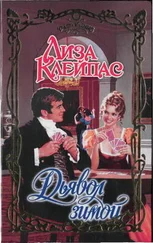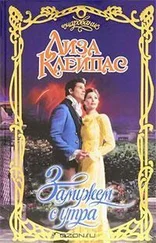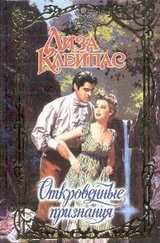There was a flicker of amusement in the boy’s eyes, and he began to look more like his usual self. “Yes, sir.”
“Good,” Tom said briskly, standing and dusting off the back of his trousers. “I’ll fetch my overcoat, and we’ll call on Dr. Gibson. I’m sure she’ll be overjoyed by yet another surprise visit from us.’”
Bazzle’s face fell. “Another shower baff?” he asked in dread. “Like before?”
Tom grinned. “You’d better accustom yourself to soap and water, Bazzle. There’s going to be a great deal of it in your future.”
After Bazzle had been washed, deloused, and outfitted in new clothes and shoes . . . again . . . Tom took the boy to his house at Hyde Park Square. He’d bought the white stucco-fronted mansion four years earlier, with most of the furnishings intact. It was four stories in height, with a dormered mansard roof, and private gardens he rarely visited. He’d kept on most of the staff, who had reluctantly adjusted to serving a common-born master. To Tom’s amusement, his servants seemed to feel they’d experienced a comedown in the world, as their previous master had been a baron from North Yorkshire.
The housekeeper, Mrs. Dankworth, was cold-natured, efficient, and remarkably impersonal, which had made her Tom’s favorite of all the servants. Mrs. Dankworth rarely bothered him, and she never seemed taken aback by anything, even when Tom invited guests without forewarning. She hadn’t even turned a hair on the occasion when one of his acquaintances from an industrial science laboratory had conducted a chemical experiment in the parlor and ruined the carpet.
For the first time in four years, however, Mrs. Dankworth seemed flustered—no, dumbfounded—when Tom presented her with Bazzle and requested that she “do something with him.”
“He’ll need a job here for the afternoons,” Tom had told her. “He’ll also need a place to sleep and someone to explain his duties and the house rules. And teach him how to brush his teeth properly.”
The short, stocky woman stared at Bazzle as if she’d never seen a boy before. “Mr. Severin,” she’d said to Tom, “there’s no one here to look after a child.”
“He doesn’t need looking after,” Tom had assured her. “Bazzle is self-sufficient. Just make sure he’s fed and watered regularly.”
“How long will he be staying?” the housekeeper asked apprehensively.
“Indefinitely.” Tom had departed without ceremony, and returned to his office for a late-day meeting with two members of the Metropolitan Board of Works. After the meeting, he ignored the urge to go back home and see how Bazzle was faring. Instead, he decided to have dinner at his club.
At Jenner’s, something interesting was always happening. The atmosphere of the legendary club was opulent but soothing, never too noisy, never too quiet. Every detail, from the expensive liquor served in cut-crystal glasses, to the plush Chesterfield chairs and sofas, had been chosen to make the club members feel indulged and privileged. To gain membership, a man was required to submit character references from existing members, provide financial records and credit balances, and put his name on a waiting list for years. An opening occurred only when a member died, and anyone fortunate enough to be offered the next place in line knew better than to quibble about the exorbitant annual fee.
Before going to the supper buffet, Tom went into one of the club rooms for a drink. Most of the chairs were occupied, as they always were this time of night. As he walked through the circuit of connected rooms, various friends and acquaintances gestured for him to join them. He was about to signal a porter to bring an extra chair when he noticed a minor disturbance a few tables away. Three men were having a quiet but intense discussion, tension clouding the air like smoke.
Tom glanced at the small group and recognized Gabriel, Lord St. Vincent, in their midst. It was hardly a surprise to find St. Vincent here, since his family owned the club, and his maternal grandfather had been Ivo Jenner himself. In recent years, St. Vincent had taken over the management of the club from his father. By all accounts, he was doing an excellent job of it, with his customary cool and relaxed aplomb.
At the moment, however, there was nothing relaxed about St. Vincent. He pushed his chair back and stood, and dropped a newspaper to the table as if it had just caught fire. Although he made a visible effort to compose himself, his jaw flexed repeatedly as he ground his teeth.
“My lord,” Tom said easily, drawing closer. “How are you?”
St. Vincent turned toward him, instantly assuming a polite mask. “Severin. Good evening.” He reached out to shake Tom’s hand, and proceeded to introduce him to the two men at the table, who had both risen to their feet. “Lord Milner, Mr. Chadwick, it’s my pleasure to introduce Mr. Severin, our newest member.”
They both bowed and offered congratulations.
“Severin,” St. Vincent murmured, “ordinarily I’d invite you to have a brandy with me, but I’m afraid I have to leave at once. I beg your pardon.”
“Not bad news, I hope?”
Looking distracted, St. Vincent responded with a faint, grim smile. “Yes, it’s bad. God knows what I can do about it. Probably not much.”
“Can I be of service?” Tom asked without hesitation.
St. Vincent focused on him then, his winter-blue eyes warming at the offer. “Thank you, Severin,” he said sincerely. “I’m not sure what’s needed yet. But I may prevail on you later if necessary.”
“If you could give me an idea of the problem, I might have some suggestions.”
St. Vincent contemplated him for a moment. “Walk with me.”
Tom responded with a single nod, his curiosity growing by leaps and bounds.
After retrieving the discarded newspaper, St. Vincent murmured to his friends, “Thank you for the information, gentlemen. Your drinks and dinners are on the house tonight.”
They reacted with smiles and appreciative murmurs.
As St. Vincent left with Tom, his pleasant expression vanished. “You’ll hear about this soon enough,” he said. “The problem has to do with my wife’s sister. Lady Cassandra.”
Tom drew in a sharp breath. “What happened? Has she been hurt?” From the quick glance the other man sent him, he realized his reaction had been too forceful.
“Not physically.” St. Vincent led the way to a spacious vestibule off the entrance hall. The room, fitted with nickel rods and mahogany shelves, had been crammed with overcoats and sundry articles.
A porter approached them immediately. “My lord?”
“My hat and coat, Niall.” While the porter disappeared into the vestibule, St. Vincent spoke quietly to Tom. “Lady Cassandra has been slandered by a rejected suitor. The rumors started circulating two or three days ago. The man described her to his friends as a heartless and promiscuous flirt—and he made sure to do it at his club, within hearing of as many people as possible. He claims she freely allowed him sexual liberties and then rejected him callously when he tried to redeem her honor with an offer of marriage.”
Tom had always known rage as a scalding emotion. But this went beyond that . . . this feeling was colder than ice.
There was only one thing he needed to know. “Who is it?”
“Roland, Lord Lambert.”
Tom went to the threshold of the vestibule. “I want my coat too,” he said brusquely in the porter’s direction.
“Right away, Mr. Severin,” came the muffled reply.
“Where are you going?” St. Vincent asked as Tom turned back to him.
“I’m going to find Lambert,” Tom growled, “and shove a damned pole up his arse. Then I’m going to drag him to the front courtyard of the Guildhall and prop him up until he publicly retracts every lie about Lady Cassandra.”
Читать дальше












